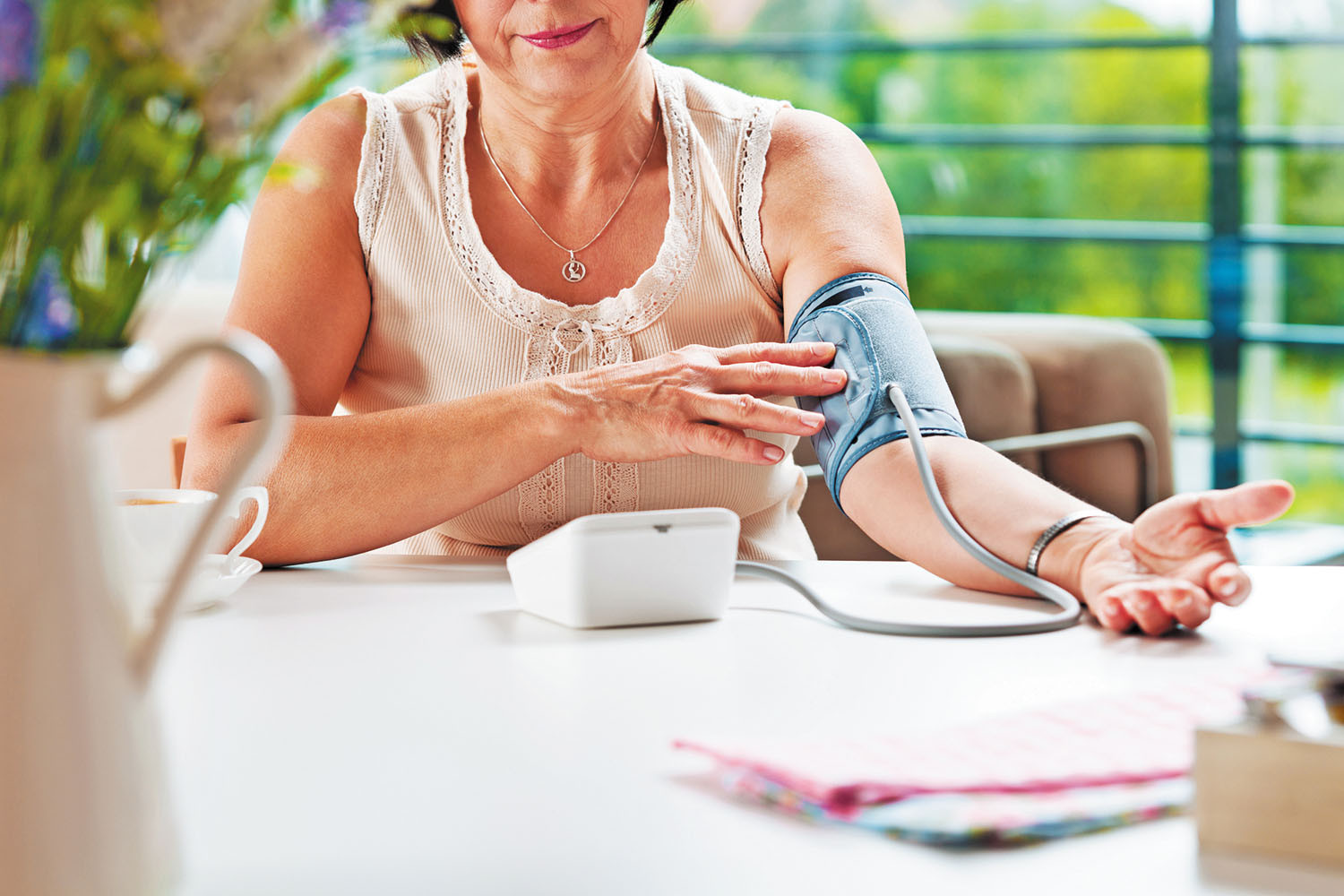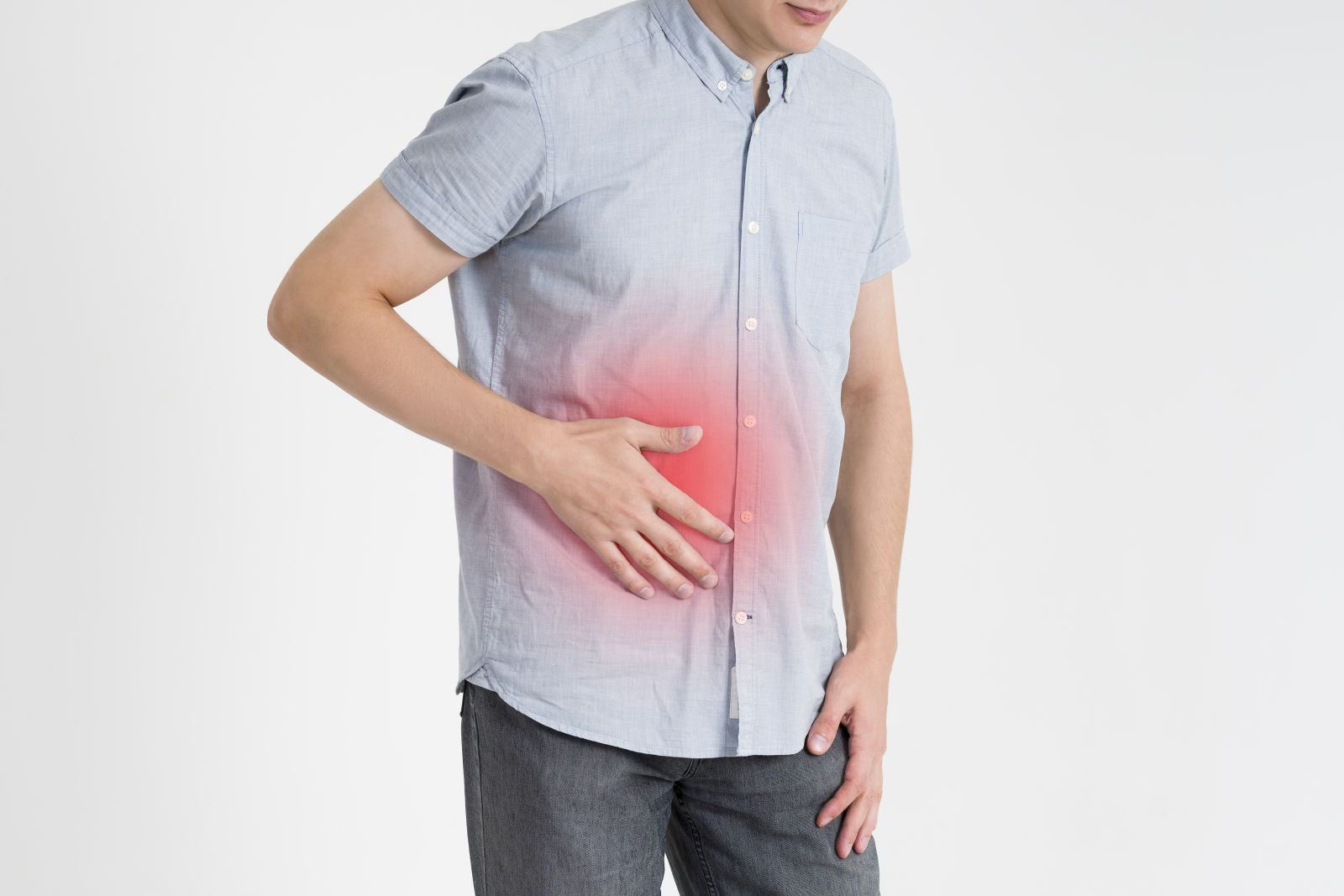
What are somatic workouts?

How to curb your stress eating

How to spot Parkinson’s disease symptoms

8 simple ways to reduce ultra-processed foods in your diet

Heart failure symptoms in women: How they’re different

GERD diet: Foods to avoid to reduce acid reflux

Strong is the new skinny

Everyday habits that sneakily weaken your bones

Don’t wait to get help for back pain

Correcting how you walk may ease osteoarthritis knee pain
Medications Archive
Articles
Tuberculosis vaccine shows promise in controlling blood sugar
Research we're watching
A long-used vaccine is showing promise in helping to restore near-normal blood sugar levels in people with advanced type 1 diabetes. Researchers from Harvard Medical School injected adults who had type 1 diabetes with two doses of the bacillus Calmette-Guérin (BCG) vaccine, which is traditionally used to prevent tuberculosis.
Participants in the study, all of whom had type 1 diabetes for many years, all showed significant improvements in their average blood sugar levels after the vaccination. The improvements lasted for the next five years. Researchers said that it appears the vaccine affected a metabolic mechanism that increases consumption of glucose by cells.
What is immunotherapy?
Ask the doctor
Image: © designer491/Getty Images
Q. A friend has melanoma, and his doctor wants to use a new kind of treatment that boosts the immune system. Can you tell me more?
A. The immune system exists to attack foreign things that enter the body, such as germs. Certain cells of the immune system recognize and attack foreign things. Cancerous cells make chemicals that are not made by normal cells, chemicals the immune system should recognize as foreign. Unfortunately, eight million people around the globe die of cancer each year after their immune systems fail to destroy the cancer. Why do their immune systems fail?
Medicine cabinet makeover
Remove expired medications to avoid hazards such as accidental poisoning or ineffective treatment.
Image: © SelectStock/Getty Images
Like any cupboard in your house, the medicine cabinet can easily become overstuffed with pills, potions, and creams that have expired or are no longer needed. But holding on to them can be dangerous. That's why experts recommend weeding through your medicine cabinet regularly. "Check it every six months or when you change your clocks," recommends Joanne Doyle Petrongolo, a pharmacist with Harvard-affiliated Massachusetts General Hospital. "Make it a regular habit to protect your family."
Medicine cabinet risks
For all their value, the substances in your medicine cabinet pose some risks beyond the side effects of the drugs:
Taming stubbornly high blood pressure
Are you sabotaging your heart health without realizing it?
Image: © izusek/Getty Images
As many as one in seven people being treated for high blood pressure doesn't have the condition under control, according to a recent scientific statement from the American Heart Association. The problem — known as resistant hypertension — is defined as having high blood pressure despite taking three or more blood pressure medications, including a diuretic.
For most people, high blood pressure means a reading of 130/80 millimeters of mercury (mm Hg) or higher. Staying below that threshold can dramatically lower a person's odds of having a stroke or heart attack. That's why it's so important to address the barriers that prevent people from reaching their blood pressure targets, says Dr. Randall Zusman, a cardiologist at Harvard-affiliated Massachusetts General Hospital.
Antibiotics help some people avoid surgery for appendicitis
Image: © Azure-Dragon/Getty Images
In the journals
It is often assumed that appendicitis means automatic surgery to relieve the pain and avoid complications. Yet, a study published online Sept. 25, 2018, by JAMA found that many people with uncomplicated acute appendicitis may be safely treated with antibiotics and avoid an appendectomy.
About 70% to 80% of acute appendicitis cases are uncomplicated, which means the appendix hasn't ruptured or formed an abscess. In the study, researchers had 530 people with uncomplicated acute appendicitis either undergo an appendectomy or receive 10 days of antibiotic therapy. After five years, 61% of the antibiotic group had no recurrences of appendicitis and no appendectomies.
Low-dose aspirin and ovarian cancer risk
Research we're watching
Image: © Robert Kirk/Getty Images
Anti-inflammatory medications may play a role in ovarian cancer risk. A study by researchers at the Harvard T.H. Chan School of Public Health found that taking low-dose aspirin regularly appears to reduce the risk of ovarian cancer by 23%. However, long-term heavy use of ibuprofen (Advil), naproxen (Aleve), and other nonsteroidal anti-inflammatory drugs (NSAIDs) seems to increase risk.
The study, published online October 4 by JAMA Oncology, looked at data on more than 200,000 women who participated in the Nurses' Health Study and Nurses' Health Study II. Among the group studied, 1,054 women went on to develop ovarian cancer. Researchers then looked at what type of medications the women took on a regular basis. They found that women who took at least 10 doses of NSAIDs a week for multiple years had an increased risk of ovarian cancer. Women who took low-dose aspirin regularly seemed to have a reduced risk — but the same was not true among women who took a standard-dose aspirin.
Why has my sense of taste changed?
On call
Image: © Meinzahn/Getty Images
Q. I have lost some of my sense of taste. I take medicine for high blood pressure. Could that be the reason?
A. The ability to enjoy food's flavor requires both your sense of taste and your sense of smell, which are triggered by the stimulation of nerve endings in the mouth and nose. As we age, our senses of smell and taste diminish. We lose taste buds, and those that remain shrink; and our tongue and nose become less discerning.
Drugstore sleep aids may bring more risks than benefits
Explore more effective alternatives to help you get a good night's rest.
Image: © miya227/Getty Images
You've spent the past few nights staring at the ceiling, thinking about your grocery list, lining up your tasks for the next day, or obsessing about your problem du jour — but what you really want to be doing is sleeping soundly. You're in the pharmacy and notice an array of over-the-counter sleep aids, and you're tempted. Will taking one help you get that deep slumber you crave?
Before you reach for that bottle, you might want to reconsider.
Certain pain relievers could harm your heart
But use is primarily a concern for people who take them over a long period or who have certain health risks.
Image: © clu/Getty Images
Numerous studies in recent years have raised concerns that common pain relievers known as nonsteroidal anti-inflammatory drugs (NSAIDs) increase the risk of cardiovascular problems, such as heart attack and stroke.
A study published September 4 in The BMJ seems to confirm the risks associated with NSAIDs and notes that one medication in particular — diclofenac (Voltaren) — is associated with even higher risks to cardiovascular health than others in the same category.
Low-dose aspirin might not benefit healthy adults
Research we're watching
Image: © dszc/Getty Images
Taking a low-dose aspirin every day could bring more risks than health benefits to healthy older adults, according to three papers from a single study, published online September 16 by The New England Journal of Medicine. The study, which began in 2010, included more than 19,000 adults ages 65 and older in the United States and Australia, who were free of cardiovascular disease, dementia, or disability, and followed participants for 4.7 years on average. Researchers found that treatment with a daily low-dose aspirin did not prevent dementia or disability. And rates of cardiovascular events (such as heart attacks and stroke) were similar between participants who took low-dose aspirin therapy and the comparison group that did not. While health outcomes were largely the same, people in the aspirin group were more likely than those who were not taking daily aspirin to experience significant bleeding, both in the gastrointestinal tract and the brain — a known risk of aspirin therapy.
While low-dose aspirin does not appear to benefit healthy older adults, this does not apply to people with known cardiovascular disease. For them, aspirin therapy significantly decreases risk of heart attack and stroke.

What are somatic workouts?

How to curb your stress eating

How to spot Parkinson’s disease symptoms

8 simple ways to reduce ultra-processed foods in your diet

Heart failure symptoms in women: How they’re different

GERD diet: Foods to avoid to reduce acid reflux

Strong is the new skinny

Everyday habits that sneakily weaken your bones

Don’t wait to get help for back pain

Correcting how you walk may ease osteoarthritis knee pain
Free Healthbeat Signup
Get the latest in health news delivered to your inbox!
Sign Up











